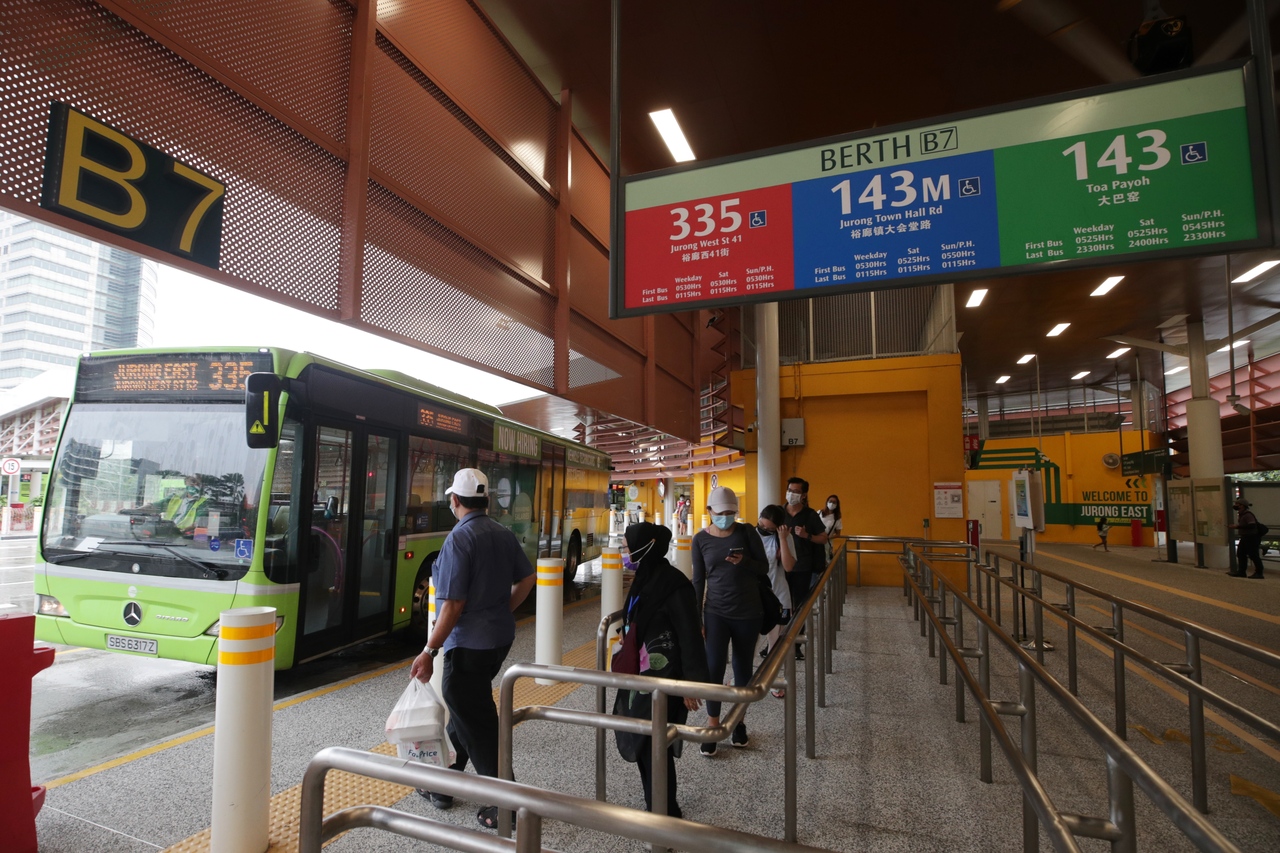askST: Are people who encounter Covid-19 cases on public transport 'transient contacts'?
Sign up now: Get ST's newsletters delivered to your inbox

Commuters should abide by the existing safe management measures, such as not talking on public transport, wearing a mask at all times and practising good hygiene.
ST PHOTO: TIMOTHY DAVID
Timothy Goh
Follow topic:
SINGAPORE - The number of Covid-19 clusters involving bus interchanges has grown in the last few weeks, from two on Aug 14 to seven last Sunday (Aug 29). By then, a total of 120 bus captains were infected as well.
The Straits Times addresses some concerns that have been raised over the recent spate of cases.
Q: Previously, it was understood that commuters on public transport could be considered "transient contacts" of Covid-19 cases that were on the same bus or train as them. Is this still the case with the Delta variant, and why or why not?
A: Professor Paul Tambyah, senior consultant in the National University Hospital's Department of Infectious Diseases, said he believes this should still be the case.
He noted that the Delta variant, which is now the dominant strain of Sars-CoV-2, is apparently more transmissible than previous strains.
But he added that it "has not led to significant numbers of commuters being infected as far as we know".
There are shields between the driver and commuters on a bus, and no physical contact is necessary between the two, said Prof Tambyah, adding that the coronavirus is not known to be airborne most of the time.
"Even though commuters and drivers share the same air supply, to date, according to the Ministry Of Health's (MOH) press releases, there have not been significant clusters of infections among bus commuters.
"There is no reason to change the definitions of contact (on the bus) unless there is new information from the MOH contact tracing team," he said.
Q: The number of clusters linked to bus interchanges seems to be growing quite rapidly. Why might this be the case?
A: To find out the real reason behind this, one would need to know the molecular epidemiology - or the genetic fingerprinting - of the infections, said Prof Tambyah.
But he offered two possible explanations.
First, the situation could be similar to what happened with the Jurong Fishery Port cluster earlier this year.
This would be a case where many people are in a cramped situation, including some who are pre-symptomatic. There may be others who are eating in makeshift environments as well.
This could lead to a superspreading event at one interchange which seeds infections at the others, just like the fishery port seeded infections in several markets.
Alternatively, the situation could be similar to that of the KTV clusters from earlier this year.
In this case, some individuals who move from interchange to interchange, such as cleaners or inspectors, may be working while they are infected.
They may then go on to infect large numbers of people, he said.
Q: Given that bus captains drive all over the island, sometimes from an interchange at one end of the country to another, as well as other factors such as the Delta variant and the rate at which bus interchange clusters seem to be multiplying, is there cause for concern?
A: Prof Tambyah said there is a slight cause for concern as the mode of transmission is currently unknown, and there are still "substantial numbers" of unvaccinated vulnerable seniors around.
While the current number of people vaccinated is higher than before, there is also the issue of waning immunity for individuals vaccinated earlier, he said.
He added: "I think that the next few days will be crucial to allow us to estimate the potential size of the clusters associated with the bus interchanges."
Q: What can commuters do to protect themselves?
A: Commuters should abide by the existing safe management measures, such as not talking on public transport, wearing a mask at all times and practising good hygiene, including washing or sanitising their hands after touching handrails and grab poles.
Those who feel unwell should see a doctor immediately and avoid taking public transport.
The authorities are monitoring the situation and will adjust measures at the interchanges when necessary.

